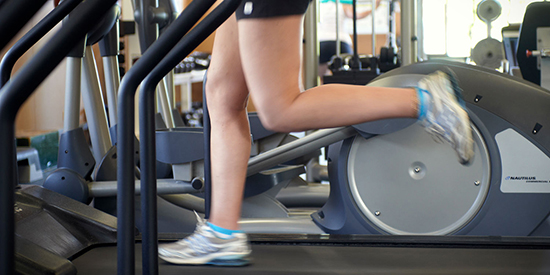Inspired to run a marathon after watching the Olympics: Deakin sport scientist recommends not taking on too much too soon
Media releaseAs the Olympic Games draw to a close, many people may be inspired to get off the couch and tackle a marathon or head to the gym.
Deakin University sport scientist, Dr Eric Drinkwater, says that while it is great that people may be motivated by the Olympics to exercise or take up a sport they shouldn’t take on too much too soon.
“Being inspired is the hardest part of taking up exercise or a sport, however there is more to getting the most from exercise than motivation,” Dr Drinkwater said.
“For example, there is more to running than simply putting on a pair of runners and hitting the footpath. There is a technique to running that, if done properly, helps the body to get the most of the exercise and helps prevent injury.”
Dr Drinkwater recommends people follow the tips below to ensure their first attempts to exercise after two weeks on the couch watching the Olympics are not their last.
- Talk to a fitness professional: Just because you think ‘I’m going to run 5km today’ doesn’t mean you can or should. There is a proper way to, for example, run or lift weights. Paying for a couple of weeks with a fitness professional will be money well spent and enough time to learn the right techniques which will prevent injury and help ensure you get the best results from your efforts.
- Be social: Not only will you be more motivated to exercise if you do it with a friend, joining social groups such as the local running club can also help with mastering the right techniques
- Choose activities that you enjoy: People often ask ‘what is the best exercise’. The answer is, the best exercise is what you enjoy and are prepared to do. You are more likely to stick with something you enjoy, rather than an exercise that seems more like punishment.
- Set goals, keep track: Keeping track, particularly through activity trackers, has built in recognition of hitting goals that will give you great satisfaction and motivation. This sits within the notion of gamification, if you can make something a game people will engage with it – same goes for exercise. For example, there is a place in New York, for example, that has replaced stair treads with heavy duty piano keys, so people can play music while walking up the stairs. This has resulted in less people using the lift. Even the smallest reward is great for motivation and encourages people to chase their goals.
- Go easy: If you push yourself too hard you can not only cause an injury but end up feeling sore and sorry for yourself a couple of days later. Feeling like you have been punished for your efforts can be demotivating and turn you off exercising again. Remember that exercise is a life-time investment, so take your time.
Share this story

